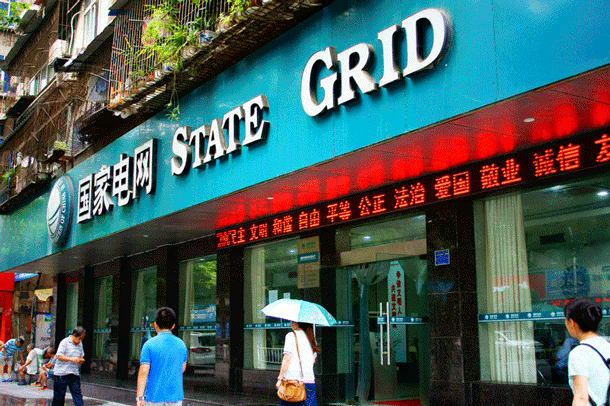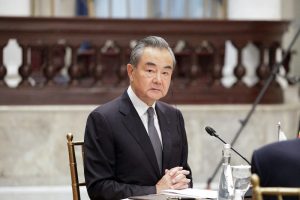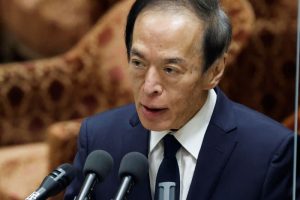(ATF) China’s renewable energy sector has been suffering for some time, mostly due to slow payment of subsidies by major players in the power industry. Now, under pressure from the government to meet the green obligations of its digital-forward “new infrastructure” plan, leaks from top-level meeting show leading government agencies are pushing fossil fuel energy giants to pay up the delayed money as part the next five-year plan.
The People’s Bank of China (PBoC), Ministry of Finance, National Development and Reform Commission (NDRC) and other departments have agreed that the two major power grid companies will issue bonds to end the shortage of new energy generation.
The State-owned Assets Supervision and Administration Commission (SASAC) of the State Council, the competent authority, said that the first tranche of bonds will cover renewable energy projects planned in the 13th Five-Year Plan.
The news leaked to local media via the energy firms after a top-level meeting held by leading policymakers
According to the Shanghai Securities News, the issuance of the first tranche of more than 140 billion yuan ($20bn) of bonds to settle new energy subsidies arrears is expected to be completed before the end of this year. The report quoted people who participated in the bond issuance promotion meeting.
At present, all the top party organs agree China’s two major grid companies will issue bonds to fill the new energy generation gaps. According to Caixin sources from power grid companies, the firms have agreed and reported to the SASAC. The first tranche of bonds is expected to cover solar, wind and biomass projects first.
State Grid transfers 100% equity of Luneng Group for free
On August 10, Tianjin Guangyu Development issued an announcement stating that power distributor State Grid is to transfer its 100% equity in Luneng Group to China Green Development Investment Group.
The recipient is, itself, a state-owned enterprise that is jointly held by China Chengtong Holdings, State Grid and China Guoxin Holdings. The beneficial owner is the state-controlled Assets Supervision and Administration Commission (ASAC) of the State Council.
From the perspective of renewable energy practitioners, there is a huge gap in renewable energy subsidies, and problems such as the long period of subsidy issuance has a long history in China.
The budgeted amount of additional expenditure for renewable energy electricity this year is 92.4 billion yuan ($12.5bn), an increase of 6.4bn yuan, or 7.5% over the implementation figure in 2019.
READ MORE: Investors launch climate plan to get to zero emissions by 2050
However, calculations suggest the renewable energy subsidy gap will reach 300bn yuan by the end of the year, and the funding sources are far from meeting the subsidy demand.
The industry’s discussion on increasing electricity price surcharges for renewable energy has been going on for many years without conclusion.
Qin Haiyan, secretary-general of the Wind Energy Professional Committee of the Chinese Renewable Energy Society, believes that the lag in the payment of subsidies has made business operations unsustainable, and will gradually lose “blood supply” leading to the market losing confidence in the sector. The problem of arrears in subsidies has reached the point where it must be resolved, and issuing bonds is a feasible way of doing so.
Grid companies are the preferred bond issuers; they have the expertise and technical means to use bond funds.
The power grid company sources said that the main body of the bond issuance plans is basically determined, but there is still uncertainty about the issue. At present, power grid companies are also facing the dual pressure of large-scale investment and operation assessment, and are embarrassed about being blamed for the lack of new energy projects.
Clouding that assessment, however, is the fact that China is increasing coal use.
Peng Peng, secretary general of the China New Energy Power Investment and Financing Alliance, said that the issuance of renewable energy subsidy bonds must be undertaken by government departments or state-owned enterprises. As socially responsible enterprises, the power grid firms will be told to assume this responsibility and will also contribute to the sustainable and healthy development of domestic renewable energy.
It’s expected bond sales will be seized upon to resolve subsidies for more projects.
Solar energy companies said that due to the cumbersome application process for renewable energy performance subsidies and a long subsidy funding cycle, cash flow pressures are tough. At present, the financing cost for private enterprises is relatively high in this field, and banks have strict control over the credit scale of renewable energy projects. Also, many enterprises have great operating pressure. The leaked news issue of bonds to solve the problem of arrears of new energy subsidies is good news for the domestic new energy industry.






















